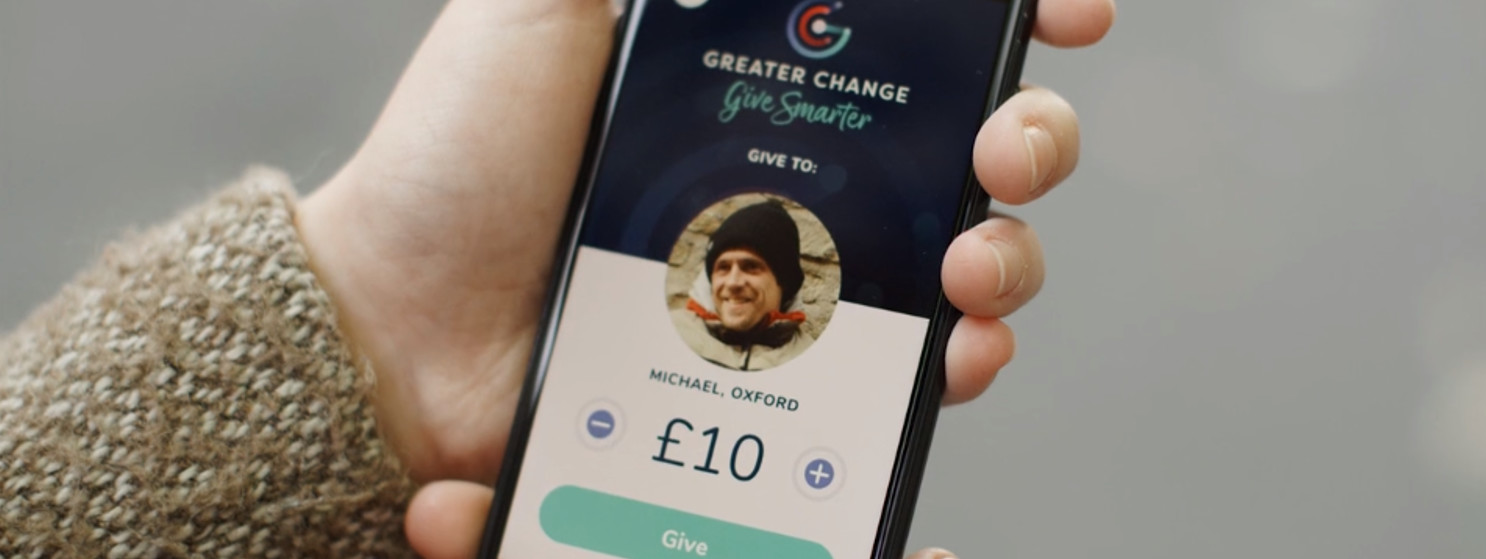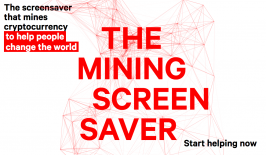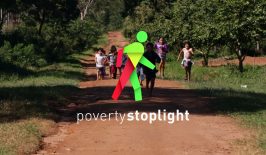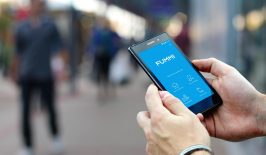Lost your job, evicted from your home, unable to survive on an inadequate pension or simply not an owner of the right passport to be supplied a work visa – these are just a few of the reasons why some people end up depending on the generosity of their fellow human beings to survive. Even in countries like Germany, where there is a robust welfare system in place, in 2016 there were around 860,000 people with no roof over their head – a 150 per cent increase on 2014. It’s a pattern which has been seen across Europe, as housing costs soar.
And as digital payments become more and more accepted, in the long run fewer and fewer people will carry cash with them. Meaning it will also become increasingly rare for passers-by to give a homeless person their pocket change as they pass by.
The “Greater Change” project from the English NGO Aspire Oxford aims to solve this problem by allowing people to donate to homeless people via their smartphone – and to understand and track the exact how their money will be used and where it ends up. The project aims not only to cover people’s concrete physical needs at short notice, but also to offer people living on the streets a clear path back into a structured life complete with a job and their own home.
How Does Greater Change Work?
Greater Change initially equips homeless people who have been suggested by social workers for the project with a digital profile within the Greater Change database. Together with a supervisor, it is decided exactly what the donations are to be used for. The spectrum ranges from toothbrushes and passports to a deposit for their own apartment. The Greater Change member then receives a card with a QR code that’s linked to their digital profile.
Donors have two ways to help: either by scanning the QR code of the person concerned with an app and making a donation directly, or by making a donation on the website. In both cases, the money is allocated to the cause that was previously agreed on. The person who is homeless doesn’t require a mobile phone or a bank account themselves – their account at Greater Change is managed by a social worker who ensures that the money is used for the designated purpose and really goes to those people who need it most.
The project, which is supported by Oxford University, is currently still in the pilot phase and will therefore only be implemented in the city of Oxford for the time being, with the plan for it to be extended to other places in the future.
The Multiple Benefits of Digital Donations
Even if it may at first seem patronising that the money donated via Greater Change is not directly available to the homeless, but instead administered by social workers, this step allows the project to ensure sustainability via long-term contact with its members, and closely accompany people on their way back to independence in a meaningful and strategic way.
Greater Change sees itself as an accompanying programme to help people in need, and is not intended to replace state programmes to support people in need (or indeed, state programmes that would tackle the root causes of homelessness). For people who want to directly support others in need, it’s a very transparent and concrete way to help. With the additional support of the social workers involved, the funds collected genuinely could help some homeless people leave life on the streets behind. The experience reports on the project’s website certainly suggest this to be the case.
We’re looking forward to seeing how soon Greater Change starts making an impact beyond the city of Oxford.
This is a translation by Marisa Pettit of an article which first appeared on RESET’s German-language site.






